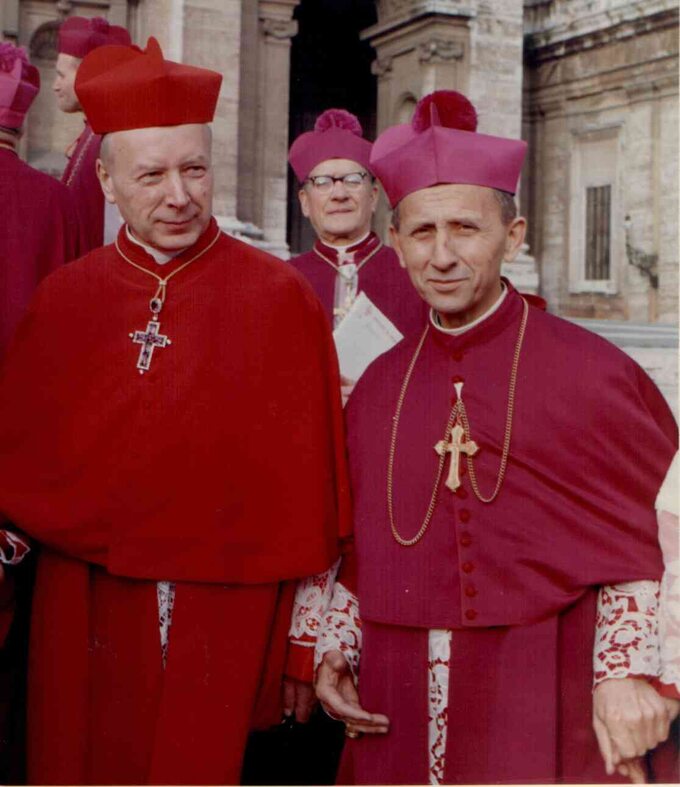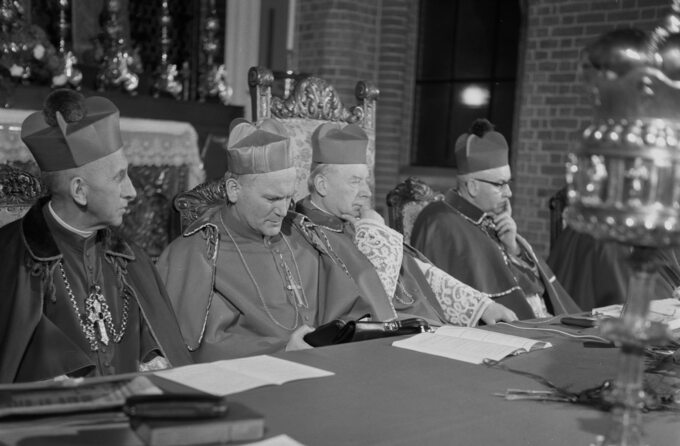Last year, the Sejm of the Republic of Poland appointed Bishop Antony Baraniak as one of the patrons of 2024. How was this choice justified?
“Archbishop Antoni Baraniak, Salesian, doctor of canon law, was the secretary of the Polish Primate, the Cardinal, before the Second World War. August Hlond. During the war, he went into exile with him, and in 1945 he returned to Poland. In September 1953, he was arrested by security officials as one of the Cardinal's most trusted employees. Stefan Wisinski. He was tortured in the detention center on ul. Rakovietska – in this way the communists wanted to force her to testify against the primate. “Despite the cruel torture, he remained loyal – he did not betray the Church, the Patriarch of the Millennium, or Poland,” the Sejm emphasized in the resolution. He regained his freedom in 1956, from 1957 he was the Metropolitan Archbishop of Poznań and a participant in the Second Vatican Council. 2024 marked the 120th anniversary of the Reverend's birth. “Shepherd”. – we read on the website of the Seimas.
God and country
Antony Baraniak was born on January 1, 1904 in the province of Sebastianov. Greater Poland. From 1917 he studied at the Salesian high school in Auschwitz. In 1920, he joined the Salesian community in Kletsa Dolna, and on July 28, 1921, he made his first religious profession. He continued his studies in Kraków, where he passed the high school graduation exam, and on March 15, 1925, he made his perpetual vows in the Salesian congregation. Then he worked as a youth educator in several cities.

Already in 1927, he went to Rome under the guidance of his superiors, who decided that he should study theology. He remained there until 1930, when he returned to Poland and was ordained a priest by Archbishop Adam Stefan Sapiha in Krakow.
Three years later, he became the secretary of Primate August Hlond, with whom he collaborated until his death. Two weeks after the start of World War II, the two traveled to Rome. Baragnac also lived in Lourdes and at Hautecombe monastery in Savoy (France). In July 1945, he returned to Poland with August Hlond. In 1948, Primate Hlond died and Antony Baraniak became the secretary and chaplain of his successor, Stefan Wysinski.
He held the position until 1951, when he was appointed auxiliary bishop of the Archdiocese of Gniezno. He was consecrated a bishop by Cardinal Wysinski. He remained an employee of the Primate as he worked in his secretariat.
Two years later, on the night of September 25-26, Primate Visinsky was arrested. Together with him, Bishop Antony Baraniak was arrested and placed in the Mokotow Detention Center in Warsaw. He spent the next three years there. Bishop Baraniak was questioned very harshly, sometimes for several hours without a break. Moreover, by the way, they were tortured. Remove nails. He was also held in the so-called wet solitary cell, where he stood for a long time in water and feces fell on his head.
Despite the pressure, torture and suffering that he went through, the communists could not break him. Bishop Baraniak never presented any testimony to Cardinal Wysinski, and this was what the security services were most interested in, because then they could accuse the primate of counter-revolutionary activities and treason.

Bishop Antoni Baraniak was released from prison on October 30, 1956, and then returned to work in the Primate's Secretariat. A few months later, Pope Pius XII proclaimed him Metropolitan Archbishop of Poznań. Despite the opposition of the communist authorities, in 1966 he organized the celebration of the millennium of the baptism of Poland.
He was ill for a long time. He died on August 13, 1977 in Poznan and was buried in the crypt of the Poznan Cathedral.
Archbishop Marek Jedraszewski said that if it were not for the bishop's steadfast attitude, “there would not have been Primate Wisinski's return to Warsaw after his imprisonment, without Primate Wisinski there would not have been Cardinal Wojtyła and then John Paul II. ”
“The history of the church in Poland, Europe and the world would have been completely different, hard to imagine for us today. And behind all this is a strong, silent figure of a man who will not bend, will not collapse and, as the primate himself said, took on his shoulders the responsibility of the primate for the Polish Church,” said Marek Jedraszewski.
Also read:
Tragic December 70. Communists suppressed strikes with bloodAlso read:
Letter 59. Objection to the “permanent alliance with the USSR”. Who signed the letter?Also read:
Archbishop Jakub Swinka. Against Germany, for the unity of Poland and the Church
(translate tags) Antony Baraniak
